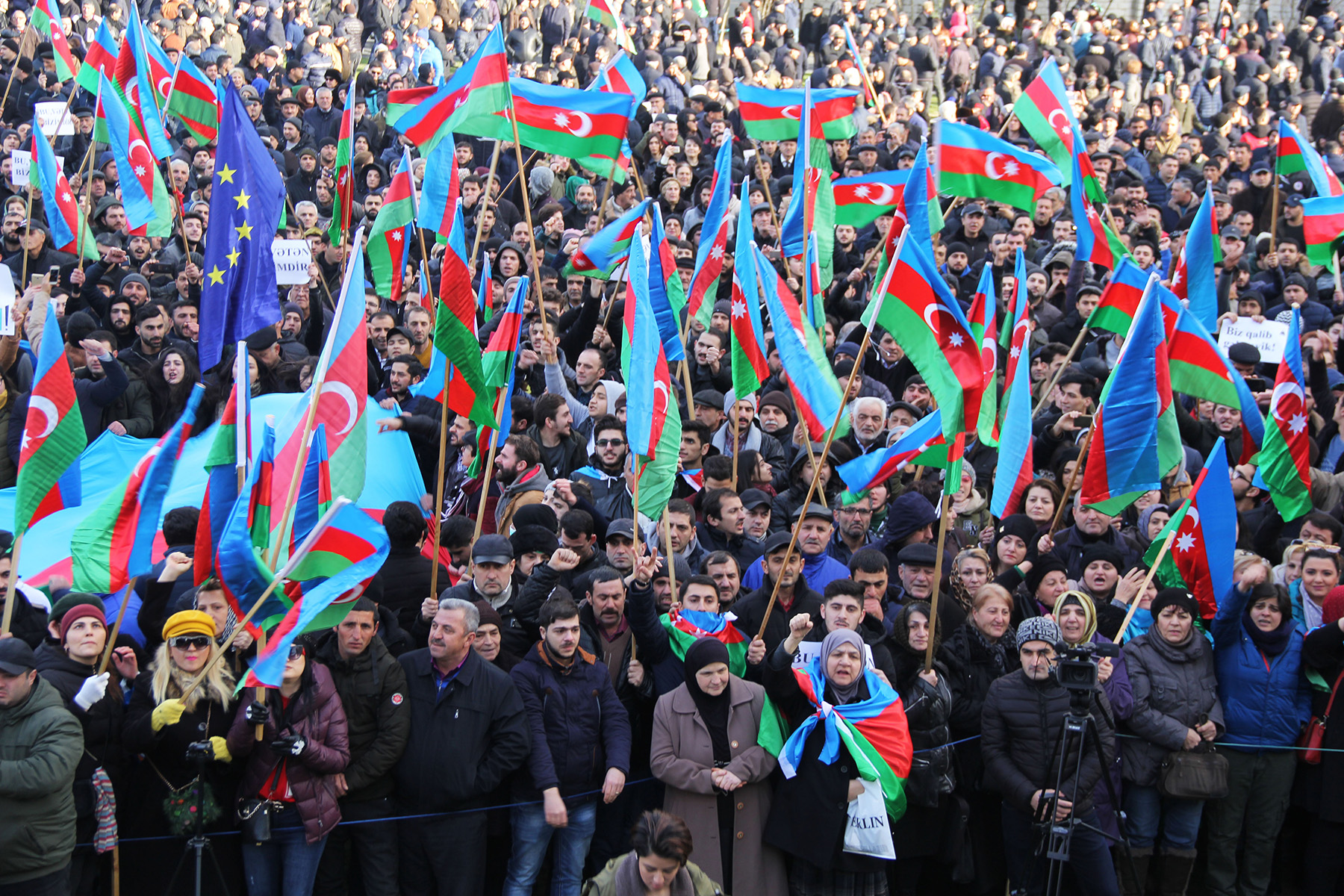
The European Court of Human Rights (ECHR) has ruled that the prison sentence of prominent Azerbaijani investigative journalist Khadija Ismayilova in 2015 was unlawful, and has ordered Azerbaijan to pay her €25,000 ($28,000) in compensation.
Ismayilova, who worked for RFE/RL’s Azerbaijani service, Radio Azadliq, was arrested in December 2014 and sentenced in September 2015 to 7.5 years on charges including tax evasion and ‘abuse of authority’.
Ismayilova published several investigations in 2015 into the activities of President Ilham Aliyev, and his friends and relatives. She said that she never set out to target them but that their names kept appearing in her investigations.
Amnesty International previously recognised her as a prisoner of conscience.
The Supreme Court of Azerbaijan overturned her conviction on some of the charges against her in May 2015, and reduced her sentence to three years probation, after which she was conditionally released.
Despite this, Ismayilova still faced several other restrictions including a travel ban, which the Court of Appeals declined to lift in January 2018.
‘Silence and punish her for her work as a journalist’
In their ruling on Thursday, the ECHR noted that Ismayilova’s arrest and detention ‘was aimed at silencing and punishing her’.
‘The totality of the circumstances indicated that the authorities’ actions had been driven by improper reasons and showed that the actual goal had been to silence and punish her for her work as a journalist’, they said.
The court found her rights to liberty and presumption of innocence had been violated and ordered the government to pay her €20,000 ($22,000) in damages and €5,000 ($5,500) in expenses.
In response to the ruling, Ismayilova thanked her lawyers adding that ‘access to legal aid is becoming a more and more difficult task for government critics in Azerbaijan’.
‘Having no access to an independent judiciary in our own country, we cast our hopes for justice upon ECHR decisions, so those who continue punishing journalists for uncovering corruption and abuses would be held accountable’.
‘Unfortunately, the Azerbaijani government has a notorious record of not implementing ECHR decisions as well.’
‘The plight for justice doesn’t stop with this decision, as we will continue demanding full implementation in the hope that these steps will convince the government of Azerbaijan to stop its oppressive actions against journalists and to reform the judiciary system, so justice can be served in domestic courts’, she said.
Call to ‘lift all unlawful restrictions’
Later on Thursday, Denis Krivosheev, Amnesty International’s Deputy Director for Eastern Europe and Central Asia, said that Ismayilova ‘has epitomised the persecution of critical voices in Azerbaijan’.
‘The injustices committed by the Azerbaijani authorities against Khadija are not yet over. She has a criminal record, as unfair convictions against her have not been quashed, and arbitrarily imposed restrictions, including a travel ban, are still in place’.
‘We call on the Azerbaijani authorities to lift all unlawful restrictions, quash the outstanding convictions against Khadija Ismayilova and comply with the court’s ruling to pay her compensation. They must also stop misusing the law for politically motivated prosecutions designed to silence peaceful critics’, he said.
Azerbaijan ‘ignores’ ECHR’s compensations rulings
Despite the ECHR awarding compensation to dozens of journalists, activists, and opposition figures in Azerbaijan, many have said that the government is not paying up.
Asabali Mustafayev, head of local rights group the Democracy and Human Rights Resource Centre, told OC Media in early 2019 that there were around 20 people in Azerbaijan awaiting compensation from the government.
He said that payment of compensation had become ‘politicised’ since 2016, and that compensation was being delayed for people actively engaged in politics.

Tofig Yagublu, a member of the opposition Musavat Party, told OC Media in 2019 that he had been waiting almost two years for compensation. ‘They want people with political will to suffer as much as possible. Although the decision of the ECHR is binding, they do not attach any importance to this’, Yagublu said.
Rasul Jafarov, head of local rights group the Human Rights Club, told OC Media that Azerbaijan deliberately does not comply with the decisions of the ECHR regarding political cases.
‘The government of Azerbaijan has a budget to execute the decisions of the European Court, and I do not think that the delay in the payment of compensation is due to financial issues’, Jafarov said.
[Read more on OC Media: Azerbaijan’s ‘selective ignoring’ of European Court compensation rulings]







